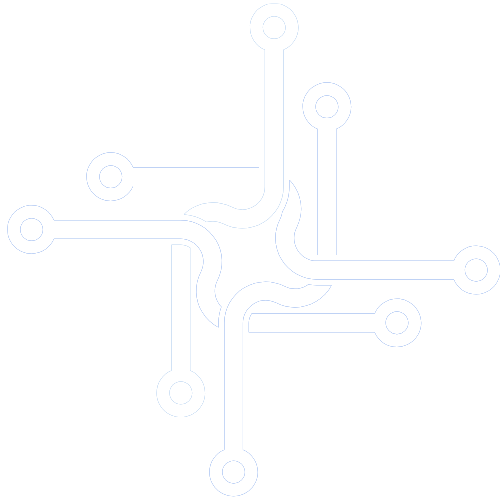How Artificial Intelligence Works in Real-World Operations
Artificial Intelligence (AI) has moved beyond the realm of science fiction and into the everyday fabric of business operations. For many small and medium-sized enterprises (SMEs), the idea of "AI" can still feel complex or abstract. However, understanding the basic principles of how AI works and its practical applications is crucial for unlocking new levels of efficiency and strategic decision-making.
This article will demystify the core concepts behind AI and explore how it's being applied in real-world business scenarios today. We'll look at the fundamental ways AI enhances operations, helping you grasp its potential without getting lost in technical jargon. Discover how AI for small businesses is becoming an accessible game-changer.

The Core Mechanisms: How AI Processes Information
At its heart, AI works by processing vast amounts of data to identify patterns, make predictions, and learn from experience. While there are many branches of AI, most real-world applications for businesses rely on a few key mechanisms:
- Machine Learning (ML): This is the most common form of AI in business. Instead of being explicitly programmed for every task, ML algorithms learn from data. For example, by analyzing historical sales data, an ML model can predict future sales trends.
- Natural Language Processing (NLP): NLP allows AI to understand, interpret, and generate human language. This is vital for tasks like customer service chatbots, analyzing customer feedback, or summarizing long documents. An AI virtual assistant often relies heavily on NLP.
- Pattern Recognition: AI excels at spotting anomalies or trends in data that might be invisible to the human eye. This is used in fraud detection, quality control, or identifying unusual spikes in customer behavior.
- Automation & Robotics: While not strictly AI itself, AI often powers intelligent automation. It provides the "brain" for systems that execute tasks automatically, making decisions based on learned data, such as optimizing logistics routes or managing inventory.
These mechanisms allow **AI for businesses** to go beyond simple automation, bringing a layer of intelligence and adaptability to routine and complex tasks alike.
Practical Applications: AI in Real-World Operations for SMEs
So, how does this translate into tangible benefits for **small and medium-sized enterprises**? Here are concrete examples of how AI works in everyday business operations:
- Customer Service Enhancement: An AI virtual assistant or chatbot can handle routine inquiries 24/7, providing instant answers, routing complex issues to human agents, and even personalizing responses based on past interactions. This frees up human agents for more critical tasks.
- Data Analysis and Reporting: AI can rapidly sift through sales figures, customer demographics, and operational data to identify key insights and generate automated reports. This helps businesses make faster, more informed decisions about marketing campaigns, product development, or resource allocation.
- Marketing Personalization: AI analyzes customer behavior to deliver highly targeted product recommendations, email content, and ad placements. This boosts engagement and conversion rates, making digital marketing automation much more effective.
- Inventory Management & Logistics: AI can predict demand fluctuations, optimize stock levels, and even plan the most efficient delivery routes, reducing waste and operational costs.
- Task Automation: Beyond simple automation, AI can learn from how employees perform tasks (like data entry or document processing) and replicate those actions, handling variations and exceptions intelligently. This is a powerful form of **automation for SMEs**.
These applications demonstrate how AI for businesses isn't just a futuristic concept; it's a practical tool for solving real operational challenges today.

Demystifying AI: It's About Empowerment, Not Replacement
The beauty of AI in operations is its ability to augment human capabilities. It takes on the data-heavy, repetitive, and prediction-focused tasks, allowing your team to concentrate on creativity, strategic thinking, and complex problem-solving. It's not about replacing human ingenuity but about enhancing it.
By understanding how AI works in these real-world scenarios, SMEs can begin to identify opportunities within their own operations to leverage this powerful technology. The goal is to build a smarter, more resilient, and more competitive business, ready to thrive in an increasingly digital landscape.
Stay informed about the evolving landscape of AI to discover how these intelligent solutions can empower your business.




